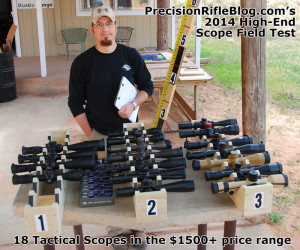With all the vastly varying anecdotal reports of IQ between scopes, I think a blinded, randomized controlled trial of scopes would be very interesting. Because there’s some degree of objectivity and methodology in evaluating IQ, I think this could be very revealing.
Bias seems to be one of the greatest influences on individuals as far as I can tell. Whether conscious or subconscious, it can be hard to admit a $600 scope is optically close to a $4k scope.
Just like some people taste soap with cilantro or prefer different flavors than others, I believe vision is the same way. This may be obvious to some folks but it’s definitely not accepted main stream because people continue to argue to the point of insults (myself included ) over IQ of scopes. In contrast, most everyone is in agreement that scope features are subjective, so no need to try and examine that. The test could be standardized to be blinded. It would take some effort but certainly doable. A way to make diopter, magnification and parallax adjustments without fingering the scope. The trial would need to include a professional eye examination and history as well obviously.
) over IQ of scopes. In contrast, most everyone is in agreement that scope features are subjective, so no need to try and examine that. The test could be standardized to be blinded. It would take some effort but certainly doable. A way to make diopter, magnification and parallax adjustments without fingering the scope. The trial would need to include a professional eye examination and history as well obviously.
Bias seems to be one of the greatest influences on individuals as far as I can tell. Whether conscious or subconscious, it can be hard to admit a $600 scope is optically close to a $4k scope.
Just like some people taste soap with cilantro or prefer different flavors than others, I believe vision is the same way. This may be obvious to some folks but it’s definitely not accepted main stream because people continue to argue to the point of insults (myself included


